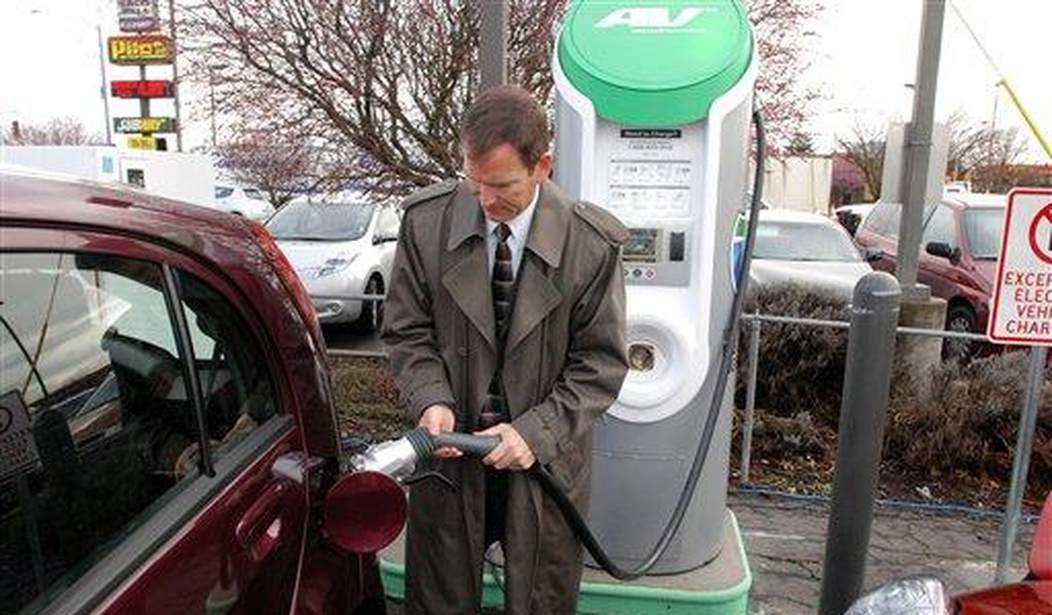The Biden administration recently finalized tailpipe emission regulations that will require 50% of new car sales by 2030 to be electric.
Currently, about 7% of U.S. vehicles sold are EVs, up from 4% last year. But the latest Gallup poll shows that Biden's EV auto goals are in deep trouble.
Just 35%, down from 43% in 2023, say they might consider buying an EV in the future. So even though the number of EVs on the road has increased, the number of true buyers of EVs has fallen off a cliff.
Just 9% of respondents say they're seriously considering an EV purchase.
“The electric vehicle market is growing, but consumers have enough reservations about the options and charging infrastructure challenges to limit more significant growth in the short term,” said Jessica Caldwell, Edmunds' head of insight.
EV shoppers are looking for three things:
1). Forty-seven percent want lower prices, ideally below $40,000 and closer to $30,000. USA Today reports there are no models below $30,000 and only three below $40,000. "In 2023, the average transaction price of an electric vehicle was $61,702, while all other vehicles stood at $47,450, Edmunds said.
2). Electric cars and SUVs, not pickups.“It's not surprising that the Detroit automakers moved swiftly to protect their top money-making products from the threat of EV startups, but at least for now it appears this fear was unwarranted as EV pickup trucks are still largely niche products with a limited consumer base,” Caldwell said.
3). The most trusted auto brands, including Toyota and Honda, are barely in the U.S. EV market. Toyota has one EV in the U.S. market, while Honda is just now offering one for sale. Tesla and BMW are one-two in the EV market.
"Gallup data confirm that the U.S. market for electric vehicle ownership remains fairly limited, with about one in six Americans currently owning one or seriously considering purchasing one," Gallup analyst Jeffrey Jones wrote. "The size of that market is unchanged since last year, although it has shifted toward more owning and fewer seriously considering buying an EV."
Among those who earn a salary of more than $100,000 per year, 59% reported owning or considering purchasing an EV. That number fell to 56% and 39% among middle-income and lower-income Americans, respectively.
An even larger disparity is present when comparing those younger Americans with older Americans, and Democrats with Republicans.
Sixty-two percent of those 18 to 29 own or would consider purchasing an EV, while 63% of those aged 65 and up said they would not buy an EV. And while 73% of Democrats said they own or would consider buying an EV, 69% of Republicans would not buy an EV, according to the Gallup poll.
Even if the EV mandates force people to consider buying electric, where are they going to recharge their vehicles? The government estimates the U.S. is going to need at least 500,000 high-quality, quick charging stations by 2030 (industry estimates range up to a million).
"The U.S. needs to quadruple its charging infrastructure by 2025 and grow it more than eight times by 2030," according to a report out of S&P Global Mobility.
I predict sales of golf carts will skyrocket in the next few years.










Join the conversation as a VIP Member